Upon Barnhardt’s closure, residents reflect on historic manufacturing plant that put Colrain ‘on the map’
| Published: 09-04-2023 3:55 PM |
COLRAIN — While the Griswold Manufacturing Co. and the businesses that came after it — most recently Barnhardt Manufacturing Co. — may be a thing of the past, the landscape is not without reminders of the village’s history.
One such reminder is the bell atop Colrain Central School that was rung for decades to signal the changing of shifts in the 247 Main Road factory building that employed up to 500 people during its heyday.
According to 93-year-old Richard Herzig, a lifelong resident of the Colrain village of Griswoldville, everyone’s lives used to revolve around the bell. When he was a young boy attending the two-room schoolhouse, the bell was rung at 7 and 8 a.m. — first waking everyone and then signaling the start of the school day. At noon, it would sound again when students walked home for lunch.
“There is a wonderful story here that reaches way beyond where the factory buildings sat,” said Belden Merims, chair of the Colrain Historical Society’s board of directors.
Griswold Manufacturing Co. opened in 1832 as a cotton manufacturing mill with 16 looms. Over the next 100 years, it grew and transformed the agricultural town of Colrain into something much larger.
During the Great Depression, the original company was sold to Kendall Mills, which continued processing cotton until the late 1980s. According to the company’s last plant manager, Gordon Russ, Kendall Mills produced up to 100,000 pounds of bleached processed cotton for items such as diapers, bandages and cheesecloth.
Between the late 1980s and mid 2000s, the plant changed hands several times and downsized until it was bought by North Carolina-based Barnhardt Manufacturing Co. in 2007. The company, now run by the fourth generation of Barnhardts, processes raw cotton for use as hygienic material in medical and personal products. But when the Colrain plant closed this year, laying off its last 31 employees, the town lost what is believed to be its largest private employer.
In light of the company fully vacating the plant on Sept. 1 after months of having a skeleton crew, residents are reflecting on what the manufacturing plant once was for Colrain.
Article continues after...
Yesterday's Most Read Articles
 Bridge of Flowers in Shelburne Falls to open on plant sale day, May 11
Bridge of Flowers in Shelburne Falls to open on plant sale day, May 11
 Serious barn fire averted due to quick response in Shelburne
Serious barn fire averted due to quick response in Shelburne
 $12.14M school budget draws discussion at Montague Town Meeting
$12.14M school budget draws discussion at Montague Town Meeting
 As I See It: Between Israel and Palestine: Which side should we be on, and why?
As I See It: Between Israel and Palestine: Which side should we be on, and why?
 Greenfield homicide victim to be memorialized in Pittsfield
Greenfield homicide victim to be memorialized in Pittsfield
 ‘We are among the leaders’: Ashfield Town Meeting voters pass bevy of clean energy proposals
‘We are among the leaders’: Ashfield Town Meeting voters pass bevy of clean energy proposals
“There were other small mills around,” Merims noted, “but this put Colrain on the map and made it a vibrant town.”
In the nearly two centuries that the plant was operational, it took on many shapes and forms. Buildings were constructed and expanded, including adding factory branches in Colrain’s Lyonsville and Montague’s Turners Falls after the power canal opened. There were also numerous floods and fires throughout its history that wiped out sections of the facility.
Many Colrain residents over multiple generations spent their entire lives working in the plant. Upon Kendall Mills’ closure, Russ recalled employees were given one week’s pay for each year they worked.
“Many of them got over 50 weeks of pay,” he said.
The manufacturing plant had an old-timers club that would meet regularly, commemorating members who worked 10, 20 and 50 years at the plant. Herzig said his mother worked there for 40 years, his father 50, and his grandfather 60. Although he worked mainly as an insurance adjuster, Herzig spent about five years working at the plant during two different times in his life, and his wife — whose great uncle was the plant’s founder, Joseph Griswold — spent a brief time working at the circuit switchboard.
As the manufacturing plant was first expanding, a recruiter went to Québec to get workers to come to town. A sizable population of French-Canadians moved to Colrain. For this reason, many modern-day residents have French-Canadian ancestry.
“If you went to Arms Academy, you either graduated and became a farmer or went to the mills,” Merims reflected, referring to a former school in Shelburne Falls.
According to Merims, as farming became less sustainable as a career, many residents sold their land and began working at the mill to support their families. It was also not uncommon for farmers’ wives to work there to earn extra money for their households.
Many husband-and-wife duos also worked at the mill on different shifts.
“They handed their kid off between bells,” Russ recalled.
While residents relied on the Griswold Manufacturing Co. and Kendall Mills for their livelihoods, the town also relied on the plant for its tax base — something that has remained true throughout the plant’s many iterations. Paula Harrison, Colrain’s treasurer and collector, previously said that Barnhardt Manufacturing Co.’s tax bill for fiscal year 2023 (July 1, 2022, to June 30, 2023) was $59,117.
Along with being a manufacturing center for the town, the factory also served as a social center. According to Merims, the largest apartment building in Franklin County at the time was built by Griswold Manufacturing Co. to house its workers.
The factory even had a general store, where workers purchased anything their families needed. Merims said founder Joseph Griswold raised meat to be sold only at the store.
Herzig was one of the general store’s employees. Each family kept a tab at the store, and when workers were paid on Fridays they would pay what they owed for the week.
According to Russ, the general store existed until the 1980s, at which time it sold mostly Kendall Mills products and products from its parent company, Colgate.
During World War II, Kendall Mills operated around the clock to support the war effort, even receiving an award for its contributions. Herzig said there are tunnels beneath the factory that were used during the war so enemies could not see what and how much was being produced inside the buildings.
While the workers were never unionized, Russ said, the companies provided great wages with incentives for hardworking employees that allowed them to support their families. However, Merims warned that this work should not be idealized as it was performed in poor conditions with few safety measures in place.
Another important function the plant served was as a sewer processing plant for the 21 neighboring homes that are part of the Colrain Sewer District. As Barnhardt Manufacturing Co. closes, the district is left with no affordable long-term solution for sewer processing. Residents have been working with regional agencies and politicians in an effort to find a solution.
While the immediate issue of sewage processing affects a small portion of Colrain residents, many families have been touched by the industry that has existed in Colrain since 1832.
With so many of Colrain’s workers being employed at the mills throughout the centuries, perhaps a special edition of the Greenfield Recorder honoring the town’s 250th anniversary in 2011 put it best: “The name ‘Griswold’ will never be forgotten in this town.”
Bella Levavi can be reached at
413-930-4579 or blevavi@recorder.com.

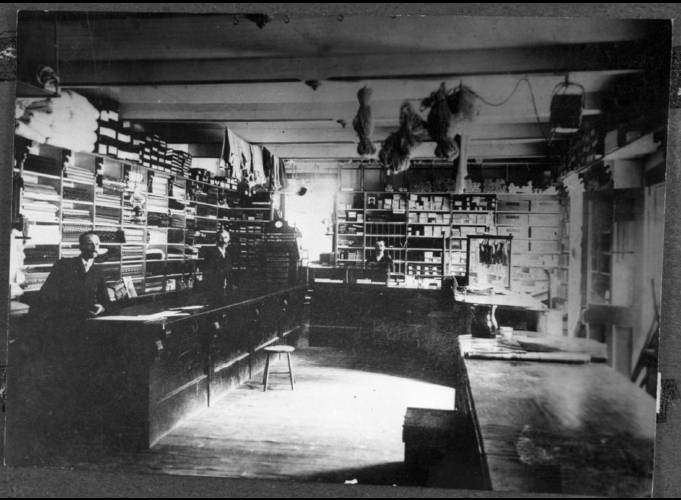
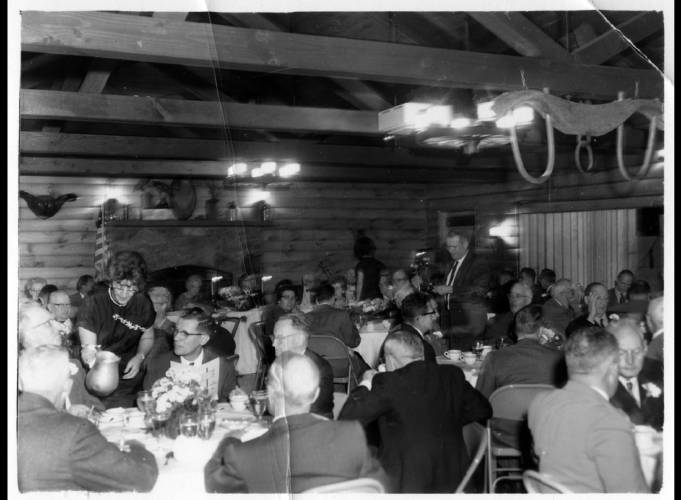
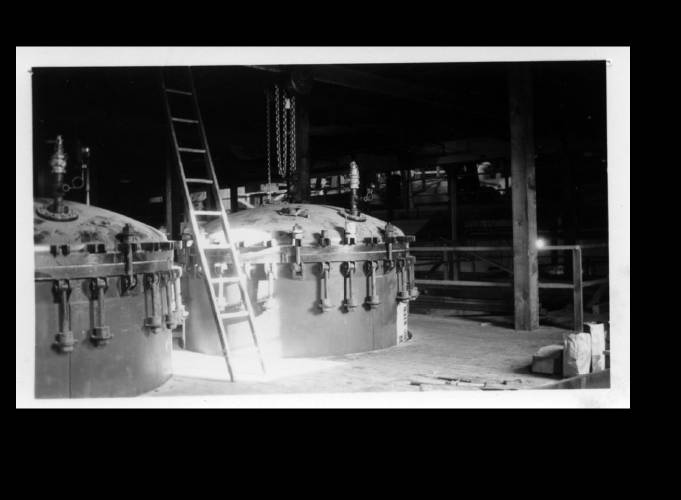
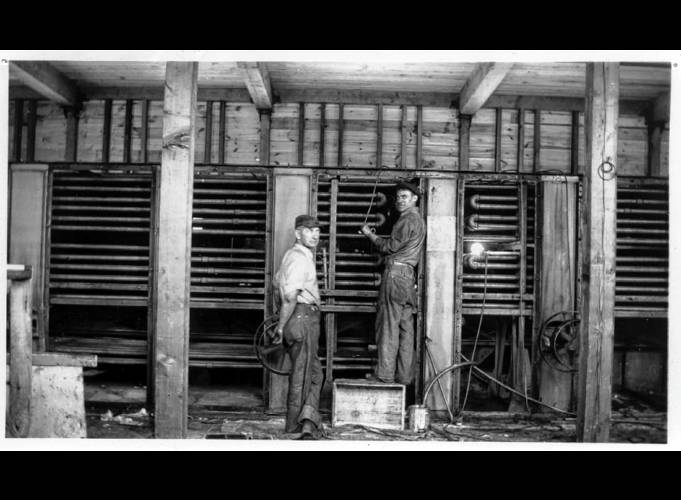
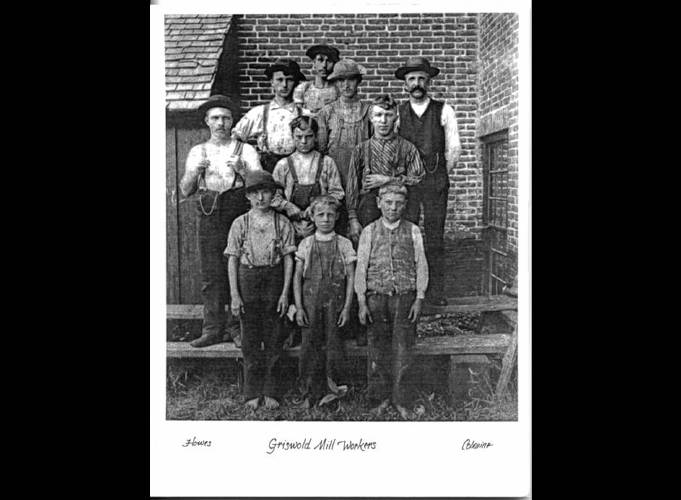
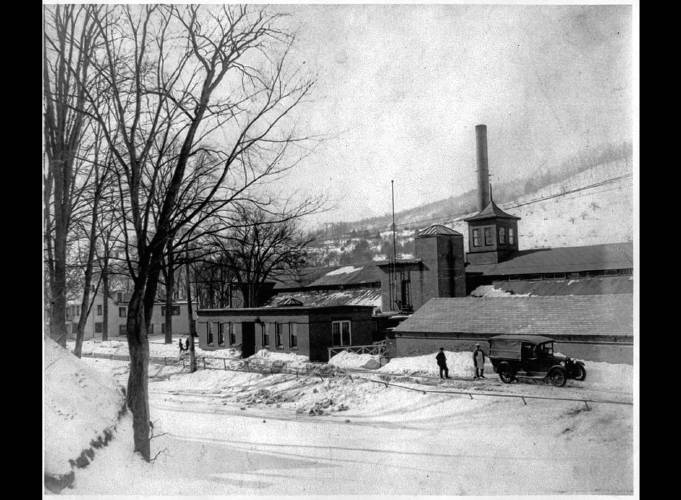
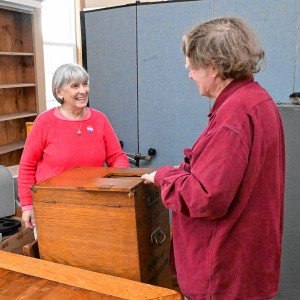 New Salem election ushers in new Selectboard member
New Salem election ushers in new Selectboard member Community Legal Aid expands Disability Benefits Project to Franklin County
Community Legal Aid expands Disability Benefits Project to Franklin County Wear Orange organizers prepare display to remember gun violence victims
Wear Orange organizers prepare display to remember gun violence victims
